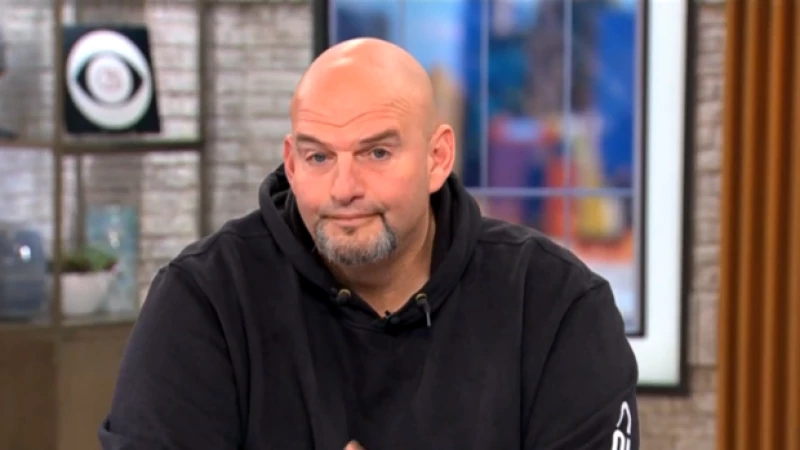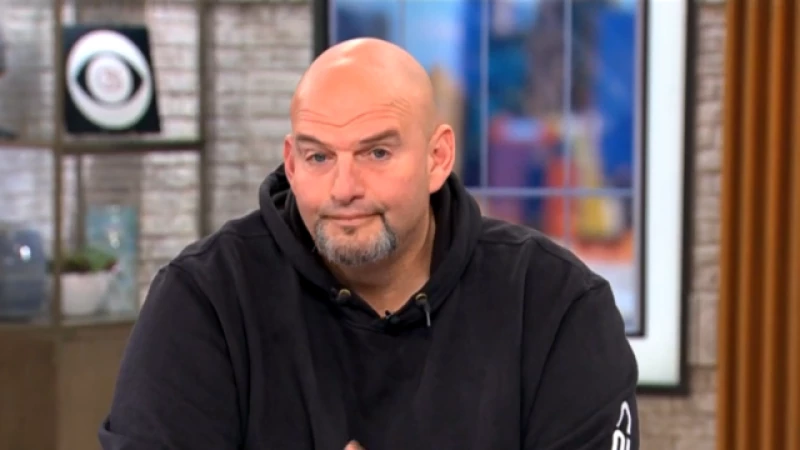Senator John Fetterman, a Pennsylvania Democrat, revealed that a year after seeking treatment for depression, he feared his career might be over.
Reflecting on his decision to seek help, Fetterman shared, "When I decided to check myself in I thought this could be the end of my career." He made this statement during an interview on "CBS Mornings," utilizing closed-captioning software and a stenographer due to ongoing auditory processing issues resulting from a stroke he experienced in May 2022.
Now, a year after completing treatment for clinical depression at Walter Reed National Military Medical Center, Fetterman expressed gratitude for being in a "much different situation." He acknowledged that when he initially sought help, he couldn't have imagined being in the position he is today, advocating for discussions on mental health and its significance.
Regarding the importance of such conversations, Fetterman emphasized, "To be able to have that conversation, whether or not it's a political winner, but it's an important conversation that I think we really have to have in this nation."
Fetterman sought treatment in February 2023 after experiencing depression on and off throughout his life, which had worsened in recent weeks. The 54-year-old had just been elected to the Senate and had suffered a stroke during the election campaign. He returned to the Senate in April of the same year and received praise from lawmakers for seeking help and advocating for others to do the same.
When asked for advice for others facing similar challenges, Fetterman emphasized the importance of seeking help, stating that it truly works. He admitted to being skeptical before seeking treatment, believing that nothing would help, but he was proven wrong. "It did. And it worked," he affirmed.

If you or someone you know is in emotional distress or a suicidal crisis, you can reach the 988 Suicide & Crisis Lifeline by calling or texting 988. You can also chat with the 988 Suicide & Crisis Lifeline here. For more information about mental health care resources and support, The National Alliance on Mental Illness (NAMI) HelpLine can be reached Monday through Friday, 10 a.m.–10 p.m. ET, at 1-800-950-NAMI (6264) or email [email protected].







